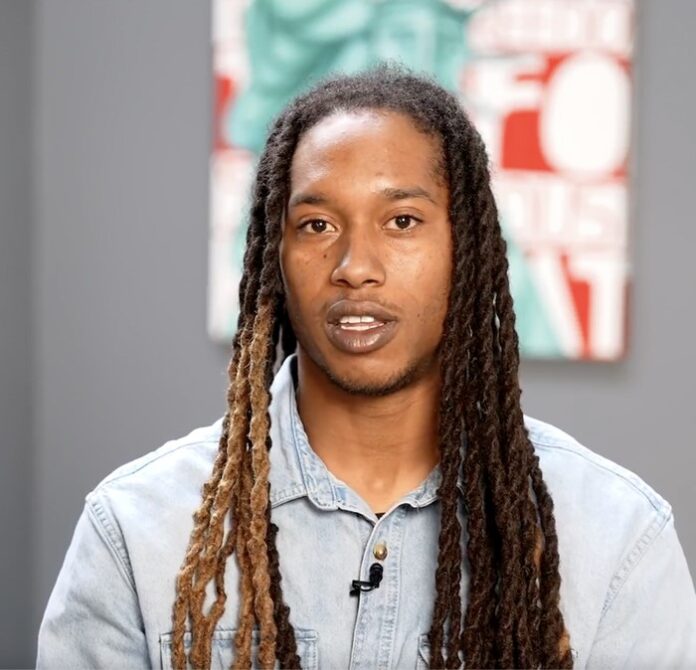In a report released Sept. 28 by the United Nations International Independent Expert Mechanism to Advance Racial Justice and Equality in the Context of Law Enforcement showed that systemic racism against people of African descent pervades America’s police forces and criminal justice system, and that U.S. authorities must step up efforts to reform them. The report follows the Mechanism’s official visit to the U.S. earlier this year, during which it heard testimonies from 133 affected individuals, visited five detention centers, and held meetings with civil society groups and a range of government and police authorities in the District of Columbia, Atlanta, Los Angeles, Chicago, Minneapolis, and New York City.
In response to this report, a delegation of organizations and individuals are heading to the UN in Geneva, where the U.S. will undergo a review for its compliance with a treaty it signed and ratified, the International Covenant on Civil and Political Rights on Oct. 17-18.
Alliance San Diego Executive Director Andrea Guerrero said the report came out after Alliance sent in its shadow reports to the UN.
“The UN has a number of mechanisms to monitor human rights,” she said. “In the aftermath of George Floyd, they created a special mechanism to specifically look at law enforcement practices in the U.S. That mechanism just issued a report finding widespread systemic racism, especially targeting people of African descent. The UN holds reviews of states to look at compliance with treaties,” adding that the ICCPR is one of four treaties the U.S. has signed and ratified.
“In that treaty, are the obligations to protect life, to treat people humanely. Law enforcement in particular,” she said. “In that report you can see what the obligations are and how we are violating them here at every level of law enforcement. Whether it is local police, or federal border agents. It is many agencies and one standard. And that the use of force standard here in the U.S. is objectively reasonable. That is not the international standard. That is not what the U.S. is bound to.”
Guerrero said that is why Alliance San Diego and others are going to Geneva to share their testimonies and stories about the impact of the deficient use of force standard which endangers lives and enables impunity.
Alliance is leading a delegation of 12 community members who are from California, Arizona, New Mexico, and Texas.
One of those community members is Spring Valley resident Ted Womack, who is also the civic engagement manager for Alliance San Diego.
“I am going to Geneva because everyone should be able to live in dignity, but as a Black man in California, I cannot,” said Womack. “I’m 32 years old and I’ve been stopped more than 100 times by police in San Diego who racially profile me, search me, and threaten me with violence. That is not the future I want for my son, wh is not only Black but also on the autism spectrum. I am afraid that if the police do to him what they have done to me, he will be harmed. The racial profiling, the warrantless searches, the threats of violence, all of it violates human rights. It’s time for the United States to respect our rights and our dignity.”
Womack said he is going to Geneva so that he and everyone that he lives with dignity.
“When I was growing up here as a teenager in San Diego, more than a lot of times, unfortunately my experiences with law enforcement, I was treated less than someone that was not important. Someone that did not deserve dignity. Somebody who did not even deserve an explanation of why whatever was happening to me was happening. Unfortunately, it forced me to look at law enforcement, or to trust that entity. I cannot really look to them if something was wrong and trust them to use dignity in employing my safety. Because I have never seen that happen before.”
In his first encounter with law enforcement, Womack said he was put in the back of a police car for no reason while playing basketball at a local YMCA.
“People were fighting inside the YMCA, so they expelled everyone there from the property, including myself and my friends who police saw and knew that we were not fighting,” he said. “As we left, a policeman started following me home in a police cruiser from a distance in a weird, covert kind of way. As I noticed it, I sat down on the curb. When I sat down, he turned on his lights and rolled up to me.”
Womack said the officer asked why he stopped, and he told the officer he did not want him following him home.
“Immediately, he arrested me and put me in the back of the car, saying I was obstructing an investigation,” he said. “That was my introduction to law enforcement at 16 years old.”
Womack said his life in encountering law enforcement was continuously like his first encounter.
“I’ve never seen a situation where law enforcement was involved where they exercised dignity or tried to find out what was really going on and treat people in the right way,” he said. “Unfortunately, that creates circumstances where people do not understand what is happening.”
Womack said police use different tactics such as intimidation, to force people to comply to whatever they have going on. Whether you are a suspect or not.
“Too many times there has been a situation where I have been pulled over,” he said. “I am not a suspect of a crime. I am not on probation. I have not committed a crime,” he said, adding that he has been stopped just to be asked if he is on parole, or why he is in a certain area.
“Then suddenly there are a bunch of patrol cars, and they ask if they can search you,” he said. “If you say no, they ask why not, because you should not be opposed to a search, and they say they can get a dog out here. They use intimidation to try to search people and override human rights.”
Womack said nobody should be scared to drive off their street. He said when he got his driver’s license at 18, he was scared to drive off his street because he knew he would get pulled over by law enforcement.
“And that is just my life,” he said. “Fortunately, I have not been shot. I have been at gunpoint. People like George Floyd and Breonna Taylor cannot tell you their story because they were murdered,” he said. “We have a really low use of force standard here in America. It is a lot of words, a lot of terms, but at the end of the day it is at the officer’s discretion to determine whose life is important, and whose is not. What is reasonable to use and what is not reasonable.”
“An officer can say he thought it was reasonable to lay on this person’s neck because he thought they were going to run away from them, or they thought they would take advantage of them” he said.
Womack said looking at the international standard, the phrase used is what is necessary and proportionate. He said too often in America, you see someone with police who is cooperating, not escalating, being thrown to the ground by multiple officers, putting knees on their chest, neck, or back, and are in handcuffs, because they say that is reasonable.
“But that is not necessary and that is not proportionate,” he said. “Nowhere is it proportionate for five people to tackle one person and they all put knees on them. Nowhere was it necessary or proportionate to kneel on George Floyd’s neck until he was no longer alive. I think those are two differences that many people undermine. What is necessary, and what is proportionate. Personally, that is why I want to go to Geneva. To change the use of force standard, to help people live with more dignity, and to hold law enforcement accountable.”
Womack said he believes this is an opportunity and hopes that some change can come from his testimony.
Womack said anyone who would like to learn more should visit startwithdignity.org and sign the petition to the President to protect human rights inside the U.S. Start With Dignity is a campaign of Alliance San Diego.
“This year is the 75th anniversary of the Universal Declaration of Human Rights, so we want to get as many signatures as we can to help support this fight so we here in America can hold law enforcement more accountable, get more people chances to have dignity and not have their rights stepped on,” he said.
Guerrero said this is the first time an international body has found that policing in the U.S. is violating human rights.
“It validates in what we know to be true, in California specifically, which is that there is racial profiling, and that has been determined by the RacialIdentity Profiling Act board, a statutory board created by the California legislature that compels law enforcement agencies to report their stop data to the state,” she said. “I am the cochair of RIPA board, appointed by Senate President pro Tempore Toni Atkins. That is a one-of-a-kind, first-ever board and mechanism in California to understand the profiling issue here in this state. No other state has this type of data collection. Now, six years in, report after report, shows a pattern of profiling. In stops, discrimination in searches, in all the actions that emerge from a police encounter. It is great that this international body is validating here in California what we know to be true. The racial disparities, the bias, the discrimination, are particularly bad here in San Diego for the state.”
Guerrero said the reports from RIPA, are about all ethnicities, not only focused on African descent. She said although the report from the UN is specific to African descent, it brings light to widespread systemic racism across all ethnicities that are subject to systemic racism.
“We are going to Geneva to shine a big light on what we know to be true, which is that the use of force standard in the U.S. is a violation of human rights, the ICCPR treaty specifically, because here in the U.S. we permit profiling to happen. We allow officers to use force and get away with it in a way that is not permitted under international rights,” she said.
The report stated that “racism in the U.S., a legacy of slavery, the slave trade, and one hundred years of legalized apartheid that followed slavery’s abolition, continues to exist today in the form of racial profiling, police killings, and many other human rights violations”. The report stated that Black people in America are three times more likely to be killed by police than whites, and 4.5 times more likely to be incarcerated. It also said that of the more than 1,000 cases of killings by police each year, only 1% result in officers being charged.
“If use of force regulations in the U.S. are not reformed in accordance with international standards, many of these killings will continue”, the report warned.
The report made 30 recommendations to the U.S. and all its jurisdictions, including the more than 18,000 police agencies in the country.














